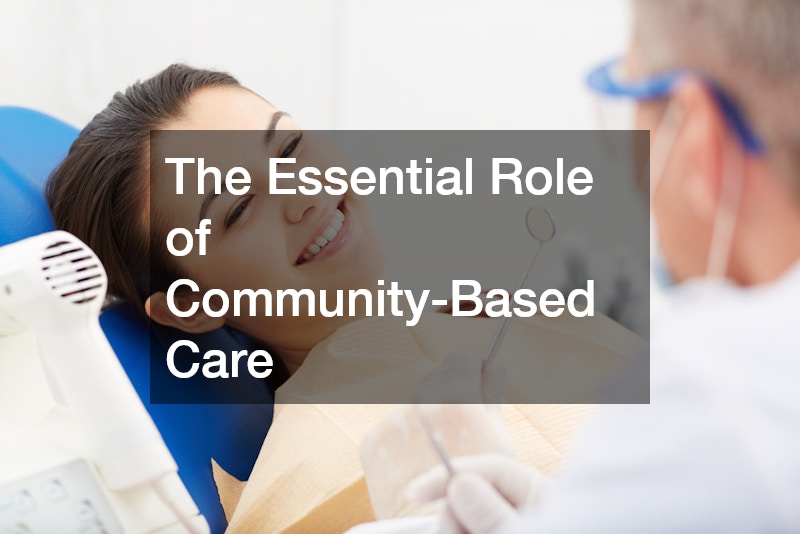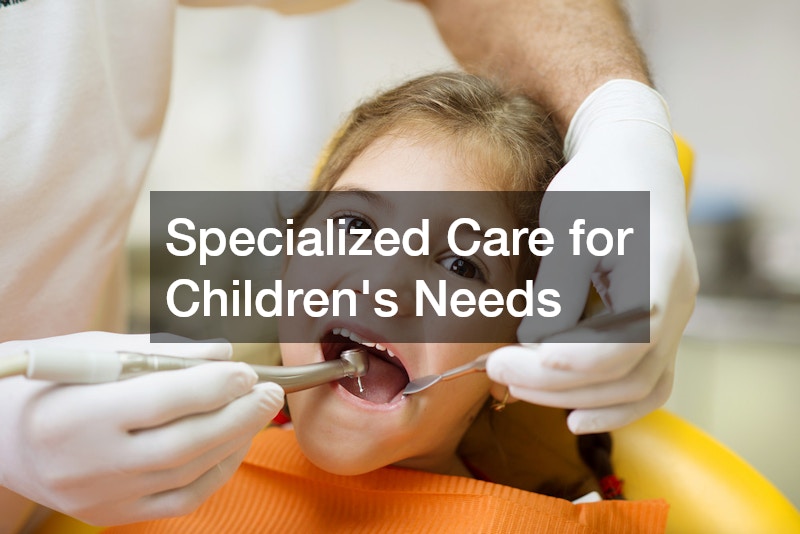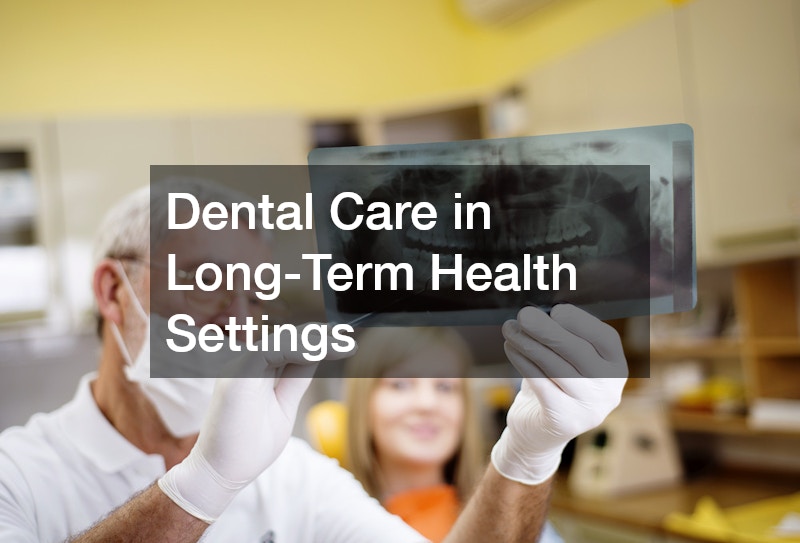Maintaining oral health is about much more than keeping your teeth white or your breath fresh—it’s a key component of your overall wellness. Numerous studies have shown strong links between poor oral hygiene and systemic conditions like heart disease, diabetes, and respiratory infections. This connection stems from the fact that the mouth serves as the gateway to the body. Harmful bacteria in the mouth can travel through the bloodstream and affect organs throughout the body. Additionally, chronic inflammation in the gums, known as periodontal disease, can increase the body’s overall inflammatory load, leading to a higher risk for various illnesses. That’s why regular dental care is essential to prevent not only cavities and gum disease but also to support total body health.
Enhancing More Than Just Smiles
When most people think about cosmetic dentistry, they picture teeth whitening or veneers designed to improve the look of a smile. While those procedures do boost confidence and appearance, they also contribute significantly to physical and mental wellness. Crooked or misaligned teeth can lead to poor bite mechanics, headaches, and uneven wear, eventually causing more serious dental issues. Cosmetic interventions often help patients chew better, speak more clearly, and avoid unnecessary strain on jaw muscles. There’s also a clear psychological benefit: improved self-esteem and reduced social anxiety often follow cosmetic enhancements. The practice of aesthetic dentistry intersects with function, proving that oral care is about more than just looks. Knowing that dentist are doctors enables patients to view cosmetic procedures as part of a broader health strategy. From orthodontics to bonding and implants, cosmetic treatments are often integrated into comprehensive care plans that improve comfort and support systemic well-being. Smiling has been linked to lower stress levels, so helping patients feel confident in their appearance can also contribute to mental health. As such, cosmetic dentistry plays a vital role in both external and internal wellness, further solidifying the link between oral health and full-body care.
The Essential Role of Community-Based Care

A trusted local dentist serves as the cornerstone of consistent and personalized oral health care. They are familiar with their patients’ medical histories, family dynamics, and unique lifestyle needs, which allows for more effective diagnosis and treatment. Local dental professionals often develop long-term relationships with their patients, enabling early detection of changes in oral health that could signal underlying conditions. Regular visits ensure that patients are educated about preventive practices, including proper brushing, flossing, and dietary habits. Because dentist are doctors, they are trained to understand how oral symptoms relate to broader health issues and can collaborate with other specialists when needed. Being part of a local health network also improves continuity of care and patient compliance. For families, having a reliable local dentist reduces anxiety and builds trust in healthcare providers. Ultimately, community-based dental care strengthens both personal and public health. Having convenient, expert guidance close to home ensures that oral wellness becomes an integral part of every individual’s overall health journey.
The Family Connection to Wellness
Family dentists play a unique and vital role in managing the oral health of patients across generations. They treat infants, children, teens, adults, and seniors under one roof, making it easier to monitor patterns of dental issues that may run in families. For example, genetic predispositions toward gum disease, enamel weakness, or misaligned teeth can be identified early when a provider has access to long-term family health records. These dental professionals educate entire households on preventive care, guiding them through every stage of life. A family dentist also helps instill healthy habits in young children, which increases the likelihood of good oral hygiene practices throughout adulthood. Because dentist are doctors, they are well-equipped to offer medical insights in addition to dental expertise, helping families understand the links between oral and systemic health. Regular appointments with a family dentist serve as checkpoints not only for dental hygiene but also for overall well-being. This consistent care model makes it easier to integrate dental visits into family routines and identify early warning signs of more serious conditions. In this way, family dentists offer both convenience and comprehensive care for every age and stage.
Restoring Function and Health With Modern Solutions

Tooth loss affects more than appearance—it significantly impacts chewing, digestion, and speech. That’s why a dental implant isn’t just a cosmetic fix; it’s a medical solution that restores functionality and prevents further oral health decline. Implants help maintain bone density in the jaw, which can deteriorate after tooth loss. This preservation supports facial structure, reducing the sunken appearance that can accompany missing teeth. Implants also help neighboring teeth stay aligned and reduce the risk of bite problems or joint pain. Because dentist are doctors, they carefully assess a patient’s bone health, systemic conditions, and medical history before proceeding with implantation. This level of detailed planning ensures a safe and successful outcome. Dental implants are often made of biocompatible materials that integrate with the bone, creating a durable and natural-feeling solution. Many people report not only better functionality but also renewed self-confidence after receiving implants. Their long-term benefits make them one of the most impactful restorative procedures available. In the broader conversation about oral health and overall wellness, dental implants illustrate how closely form and function are tied, demonstrating that oral care contributes deeply to quality of life and long-term health.
Accessible Experts Close to Home
Having access to local dentists is essential for maintaining consistent oral care. These providers form an important link in the healthcare system, especially when emergencies or sudden symptoms arise. From treating toothaches to diagnosing gum disease, local dentists offer the timely interventions necessary to prevent minor issues from becoming major health problems. Because dentist are doctors, they are trained to recognize oral signs that may indicate more serious conditions such as diabetes, immune deficiencies, or even cancer. Local providers can collaborate with other health professionals to form a multidisciplinary approach to patient care. They also often take part in public health initiatives such as school screenings, fluoride programs, and oral health education in underserved communities. By serving diverse populations and adapting their services to meet local needs, these dentists help improve community-wide health outcomes. They also support prevention by encouraging routine checkups and hygiene education. The convenience of having expert care nearby encourages more people to maintain regular dental visits, which are critical for early detection and long-term health. In sum, local dentists play a crucial role in integrating dental health with overall wellness, making care more efficient and effective for everyone.
Specialized Care for Children’s Needs

Children require a different approach to dental care due to their developing teeth, growing jaws, and evolving habits. Pediatric dentists specialize in providing age-appropriate dental services for infants through adolescents, addressing both preventive care and specific oral health conditions. These professionals are trained to work with young patients who may be fearful, uncooperative, or have special healthcare needs. Their offices are designed to be welcoming and child-friendly, helping to reduce anxiety and promote positive experiences. Pediatric dentists focus heavily on preventive care, such as sealants, fluoride treatments, and guidance on thumb-sucking or pacifier use. Since dentist are doctors, they also assess how oral issues can impact other areas of health, including speech development and nutrition. They work closely with parents to establish healthy habits at home and educate them about the importance of regular checkups. Early dental visits are crucial for identifying bite issues, decay, or developmental abnormalities. Pediatric dental care lays the foundation for a lifetime of good health by instilling strong oral hygiene practices and fostering positive attitudes about dental visits. These specialists are essential to promoting holistic well-being during the critical stages of childhood development.
The Overlooked Link Between Oral and Sleep Health
It may come as a surprise that oral health and sleep quality are closely related. Many individuals suffer from sleep disorders without realizing that the root cause may lie in their jaw or oral cavity. A sleep doctor often works in conjunction with a dentist to evaluate symptoms like snoring, teeth grinding, and sleep apnea. Custom oral appliances can be created by dental professionals to reposition the jaw and open airways during sleep. Since dentist are doctors, they understand how oral structures affect breathing and can play a vital role in diagnosing and treating sleep disorders. Chronic sleep deprivation has been linked to a range of health issues, including hypertension, depression, and weight gain. Identifying and addressing sleep-related oral health issues can significantly improve quality of life. Moreover, untreated conditions like sleep apnea can lead to systemic inflammation and increased risk of cardiovascular disease. Collaborative care between sleep specialists and dental professionals highlights the holistic nature of health, where one area of concern can influence many others. Treating sleep issues through oral health solutions offers patients a more comfortable and non-invasive alternative to more traditional interventions.
Dental Care in Long-Term Health Settings

For elderly patients, oral health often becomes more complex due to medication use, chronic illnesses, and mobility limitations. Many memory care facility residents experience dry mouth, gum disease, or tooth loss, which can lead to discomfort, poor nutrition, and reduced quality of life. Dental professionals play an essential role in these settings by providing routine cleanings, monitoring for infections, and addressing issues related to oral hygiene. Because dentist are doctors, they also consider how cognitive impairments affect a patient’s ability to follow oral care routines and may adjust treatment plans accordingly. In memory care environments, maintaining oral health is especially important as poor dental hygiene can exacerbate confusion, pain, and agitation in patients with dementia. Dental teams often collaborate with caregivers and healthcare providers to develop customized care strategies that align with the resident’s overall health goals. Integrating dental care into long-term facilities ensures that aging adults continue to receive comprehensive health support. This approach improves not only physical well-being but also emotional comfort and dignity. Addressing oral health needs in memory care settings underscores the importance of continued dental involvement across all stages of life.
Understanding the Hormone-Oral Health Connection
Hormonal changes have a profound impact on oral health, especially for women. Puberty, pregnancy, and menopause can all lead to gum inflammation, increased sensitivity, and changes in salivary flow. For those exploring hormone replacement therapies, such as bioidentical hormone pellets, understanding the oral side effects is crucial. These therapies aim to restore hormonal balance and are often used to alleviate symptoms like fatigue, mood swings, and bone loss. However, shifts in hormone levels can also increase the risk of gingivitis and periodontitis. Dentist are doctors who can recognize hormone-related changes in the gums and provide appropriate treatment plans. For example, they may recommend more frequent cleanings or specific oral hygiene products to combat inflammation. Communication between a patient’s dental provider and hormone therapy specialist can ensure that both aspects of care are aligned. Being proactive about oral care during hormonal transitions can help preserve overall health and prevent complications. A deeper understanding of how systemic treatments like hormone therapy influence oral tissues helps highlight the interconnected nature of health. Patients receiving bioidentical hormone pellets should prioritize regular dental visits as part of their wellness routine.
Bridging Gaps in Coverage and Access
Navigating the financial side of healthcare, including dental services, can be daunting for many individuals and families. That’s where a knowledgeable health insurance broker becomes invaluable. These professionals help clients choose plans that provide adequate dental coverage while also addressing broader health needs. A well-structured insurance plan can make the difference between receiving timely care and delaying treatment due to cost concerns. Health insurance brokers work to understand individual and family needs, guiding clients through plan options, coverage details, and benefits related to oral care. Since dentist are doctors, many procedures they perform—such as oral surgery or periodontal treatment—can have significant health implications and deserve adequate coverage. Insurance brokers can also clarify the distinctions between preventive, basic, and major dental services to ensure clients know what’s included. By bridging the knowledge gap between consumers and insurance providers, brokers make it easier for people to access the care they need without financial strain. Understanding your benefits ensures that dental health remains a priority and not an afterthought. Partnering with a health insurance broker is a smart strategy for supporting whole-body wellness through accessible, affordable oral healthcare.
As we’ve explored throughout this blog, the mouth is not separate from the body—it’s deeply connected to our physical, emotional, and mental health. Oral health plays a key role in everything from digestion and nutrition to sleep quality and cardiovascular function. When people recognize that dentist are doctors, they begin to appreciate the essential role these professionals play in preventing and identifying systemic diseases. Comprehensive oral care improves quality of life, supports longevity, and enhances confidence. By staying informed, maintaining regular checkups, and integrating oral health into your broader healthcare plan, you set the foundation for long-term vitality. It’s time we stop thinking of dental care as optional and start seeing it as integral. Dentist are doctors who hold the key to not only our smiles but to our overall well-being. Prioritizing oral health is one of the most effective steps you can take toward a healthier, more balanced life.